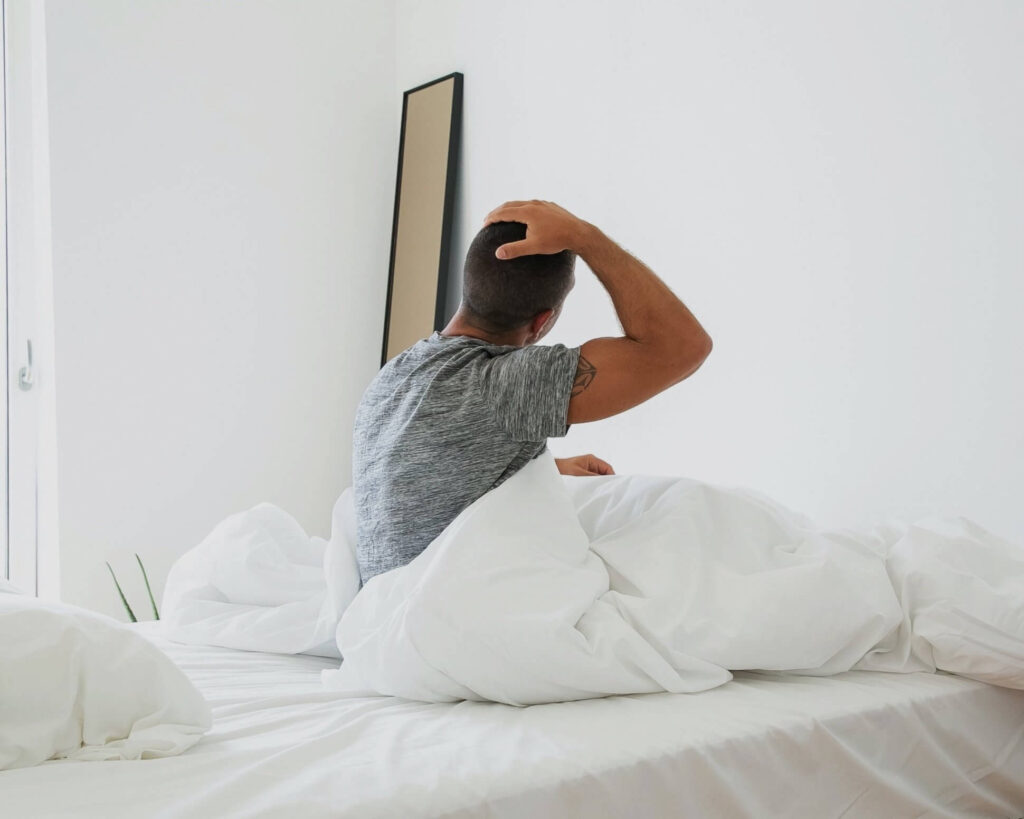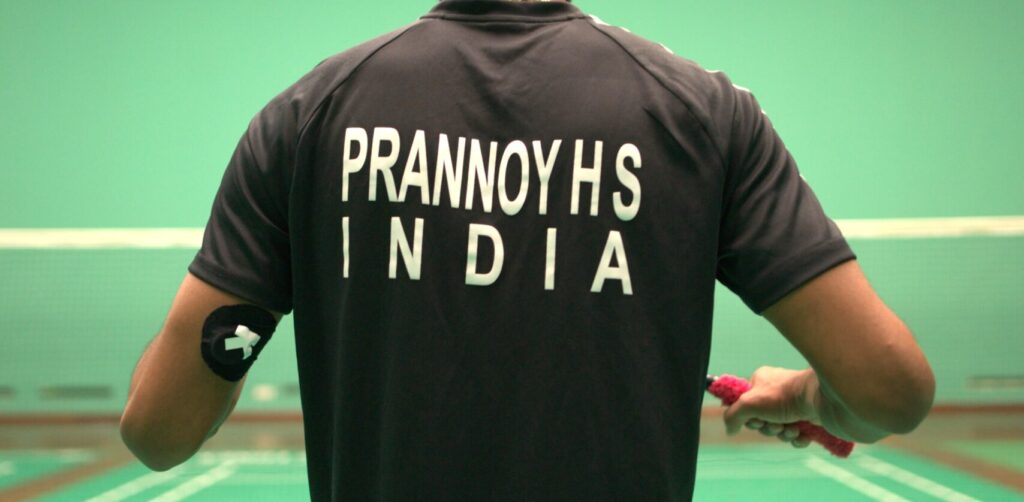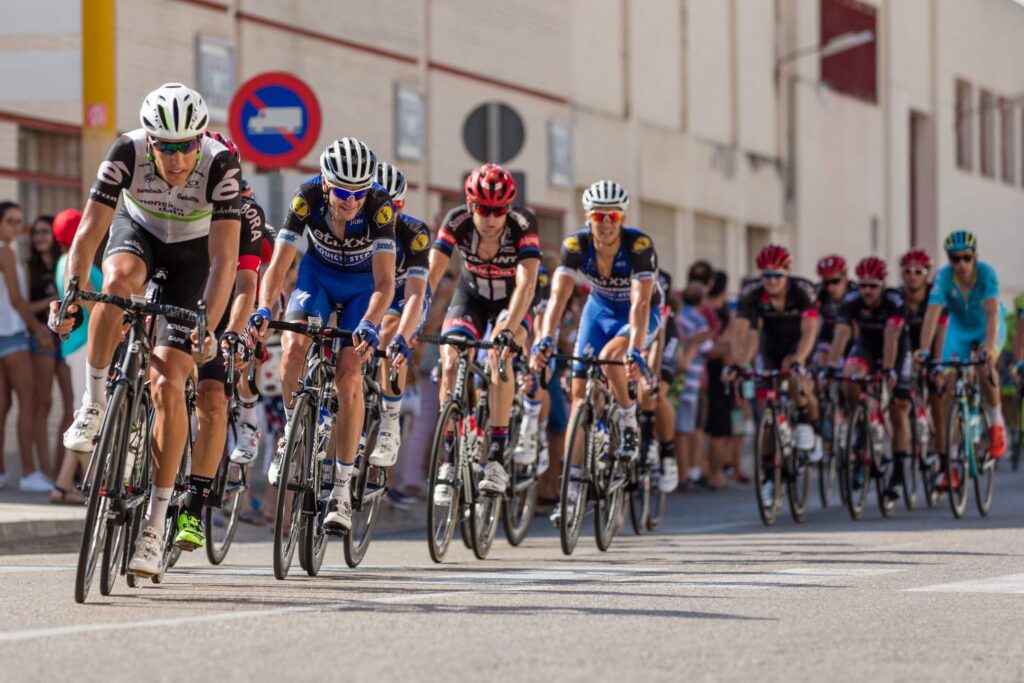Gruelling training sessions, physically demanding tournaments, long haul flights, societal expectations. The stressors that an athlete faces on a daily basis certainly take a toll on them. Finding some hours of shut eye in the midst of all the chaos can be a challenge for many. A majority of athletes face severe sleep issues as a consequence of their busy lifestyle. Once they do fall asleep, the question remains as to how many hours athletes should sleep. The national sleep guidelines suggest that young adults and adults, who make up a majority of the athlete demographic, are advised to get around 7-9 hours of rest a day. This article serves to reveal whether the eight-hour sweet spot is the optimum duration for attaining better performance.

Highlights
- The national sleep guidelines suggest that young adults and adults, who make up a majority of the athlete demographic, are advised to get around 7–9 hours of rest a day,
- For an athlete, however, getting up to eight hours of sleep at night can be an uphill task due to the scheduling of matches, which may end close to midnight or start early in the day, frequent travel, social media, and injuries,
- Deprivation of sleep raises the levels of cytokines which may affect immune system function, restrict muscle recovery, imbalance the autonomic nervous system, lower cognitive performance.
Athletes And Sleep: The Reality
Lebron James may be sleeping for 12 hours a day. Rafael Nadal sleeps for eight hours. Athletes usually have different preferences regarding the number of hours of rest they get at night. A majority of individual athletes sleep for an average of 6.5 hours a night and those who play team sport sleep for an average of seven hours a day. These numbers certainly appear minimum.
For an athlete, however, getting up to eight hours of sleep at night can be an uphill task due to the scheduling of matches, which may end close to midnight or start early in the day, frequent travel, social media, and injuries. In addition, the adrenaline rush most athletes feel before a match prevents them from falling asleep. A study revealed that athletes tend to stay up late into the night and spend excessive hours on social media before a big match. The exposure to blue light affects melatonin production, which in turn impacts the circadian rhythm. A majority of athletes suffer from sleep disorders such as sleep apnea, trouble falling asleep, snoring, disordered breathing and insomnia. This is a concern because sleep is one of the most crucial forms of recovery for athletes.
The Number Eight
The origins of the optimal number eight come from Welsh socialist reformer Robert Owens from the 19th century. He proposed the idea of an eight-hour work day and in turn eight hours of sleep at night. The world has rapidly changed ever since. Especially for athletes, as previously illustrated by their hectic lifestyle, getting eight hours of rest is virtually impossible. A study revealed that athletes get under eight hours of rest a night. That begs the question: are eight hours the optimum number for performance? The answer lies in the fact that an athlete’s sleep schedule is heavily influenced by their chronotype. The chronotype of an athlete refers to the person’s preference for being a morning or evening person. In addition to having a chronotype, a consistent wake-up time is crucial. This cements the fact that athletes should be consistent with their sleep and wake-up times and focus on prioritizing a minimum of 7–9 hours of sleep at night in addition to understanding their chronotype.
The Tale Of The Chronotypes – How Chronotypes Influence Performance
In continuation with the above passage, chronotype in technical terms refers to the “variation of an individual’s pattern of early or late initiation of daily activity”. The chronotype is controlled by the central circadian clock, which is located in the suprachiasmatic nuclei of the hypothalamus. The PER3 gene, which is a core gene of the circadian clock and is a critical marker for determining the circadian pattern.
With respect to the different types of chronotypes, it has been classified into morning, intermediate and evening types. The chronotype, according to studies done in the past, can have a direct influence on the performance of an athlete as it determines when the athlete is most active. Studies have shown that a late type chronotype and poor sleep quality significantly impact performance in elite athletes.
Studies done on elite athletes have revealed that in a baseball season, athletes who have the morning chronotype had a better batting average than evening types during early games. The converse was also true. Another study revealed that since athletes base their schedules on training and competition schedules, they choose sports according to their sleep/wake schedules.To add to the same, athletes can effectively alter their diurnal pattern, by training at the time of when the event will be. This sets the body in state wherein using the chronotype and the timing of the event. The body is adapted to perform optimally.

Sleep Extension In Athletes And Its Benefits
Now that there is some consensus on the aspect of the sleep requirements for athletes. This section of the article serves to throw light on the effects of sleep extension. Sleep extension for an athlete in their eyes is regarded as unnecessary and ineffective. However, going back to the example of “Kid from Akron”, the more sleep you get at night and at critical times during the day can be crucial to how you perform. A study conducted on six basketballers observed that after two weeks of getting extended sleep, their sprint timings improved as did their free throws made.
They had increased vigour and lesser fatigue. There was also a considerable improvement in PVT reaction times after the sleep of 10 hours per night. On the other hand , athletes who were getting 5–7 hours of sleep per night were made to sleep for eight hours a night for three nights. It was observed that there was no recovery for the individuals in this study group. If extended for longer periods of time, athletes will benefit from longer sleep hours. With regards to the mental space in which an individual should be in, the extension of sleep has helped the athletes perform better.
The Downsides Of The Lack Of Sleep
For an athlete, the loss of sleep can be debilitating. In terms of metabolic health, lack of sleep can lead to the impairment of glucose sensitivity, the impairment of glycogen repletion and affect appetite. It can also affect growth hormone and cortisol levels. Deprivation of sleep raises the levels of cytokines, which may affect immune system function, restrict muscle recovery, imbalance the autonomic nervous system, lower cognitive performance. To add to this, lack of sleep can have an impact on the running performance of an athlete, sprint times, tennis serve accuracy and lowered sub-maximal strength.
The Outlier When It Comes To Sleep
Nick Littlehales, a British sleep and performance coach, advises many elite athletes in the NBA, NFL, Premier League, Olympic athletes and more. He works on restructuring our circadian rhythm to be adjusted to a polyphasic routine. In polyphasic sleep, rather than sleeping for a long stretch of time, the sleep is broken into a core sleep that lasts for 90 minutes, stretching to about 6 hours in some cases; this is supplemented by short 20-minute naps at regular intervals.
On average, a person will get about 3–7 hours of sleep in a day. The body will be in a state of Rapid Eye Movement sleep in this case and will experience slow wave sleep. Though some journals differ on this type of sleep, the best example for this is Cristiano Ronaldo. According to an article by the Mirror, Ronaldo who works with Nick takes five 90-minute naps a day. In terms of the eight-hour myth, this approach is certainly the complete opposite.

The Protocols Towards Ensuring Optimal Sleep Goals For Ultimate Performance
- Maintain a sleep schedule:
Set a fixed bedtime and wake-up time. The bedtime and wake- up time, as illustrated already, is influenced by multiple factors. - Take a nap:
Napping for less than 20 minutes or more than 90 minutes is considered to be optimal for performance. It has been observed that in a study that in a netball session, the athletes who rested had a peak jump velocity. Another study was done on endurance athletes, it revealed that a 90-minute sleep–which represents one sleep cycle–is beneficial for slow wave sleep, which has the ability to boost the release of growth hormone and aid in recovery. Pre-competition naps are usually used to boost athlete performance due to the lack of sleep the night before. - Ditch the screen: Stay off the screens for an entire hour and a half before bed.
- Maintain healthy sleep hygiene: Sleep hygiene includes not using gadgets in bed, sleep in a completely dark room away from bright light and routers.
- Listen to sleep stories: Listening to sleep stories can be a very relaxing process. The Ultrahuman app has a fine curation of sleep stories to help you drift off into a restful sleep.
- Diaphragmatic Breathing: It can be highly restorative in terms of lowering your heart rate to get a restful sleep towards the evening. In the mornings, the athlete could perform Buteyko breathing in order to allow them to be more alert and ready for their training
The Verdict On The Eight Hour Myth
Now we know that the eight-hour myth is only partially true. However, for those elite athletes who strive to achieve maximum performance, sleeping for a couple of extra hours has proven to be the difference-maker. When combined with your chronotype and the type of sport that you play, you will be able to discover what helps you tick. In essence, it is you who decides what kind of sleep schedule suits your needs, beware though of cutting back on your sleep, as it can have severe consequences.
Sleep is one of the most crucial weapons in the performance arsenal. It should be prioritised and used on a daily basis by athletes who are journeying towards the top.
Disclaimer: The contents of this article are for general information and educational purposes only. It neither provides any medical advice nor intends to substitute professional medical opinion on the treatment, diagnosis, prevention or alleviation of any disease, disorder or disability. Always consult with your doctor or qualified healthcare professional about your health condition and/or concerns and before undertaking a new healthcare regimen including making any dietary or lifestyle changes.
References
- Shannon O’Donnell,Christopher M Beaven, and Matthew W Driller https://www.ncbi.nlm.nih.gov/pmc/articles/PMC6112797/
- Kenneth C. Vitale, Roberts Owens,Susan R. Hopkins and Atul Malhotra https://www.ncbi.nlm.nih.gov/pmc/articles/PMC6988893/
- https://bmcsportsscimedrehabil.biomedcentral.com/articles/10.1186/s13102-020-00228-2
- Shona L. Halson https://www.ncbi.nlm.nih.gov/pmc/articles/PMC4008810/
- Cheri D. Mah, Kenneth E. Mah, Eric J. Kezirian, William C. Dement, https://www.ncbi.nlm.nih.gov/pmc/articles/PMC3119836/








